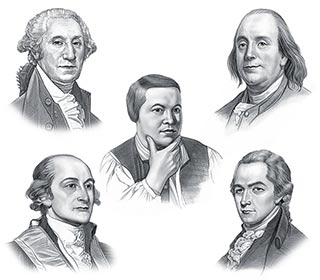There were high levels of unemployment in England with little prospects of getting a job during Colonial Times. Young, working class men and women turned towards America for a better life - even if they had to give five or seven years of their lives to pay for the journey by the system of Indentured servitude.The second sons of wealthy families, without the prospect of an inheritance, were looking for opportunities to make money during Colonial Times in America. Colonial Times - Land and the Headright System
The Headright System was introduced during the Colonial Times in 1691. Headrights were given by the London Virginia company that gave 50 acres of land to colonists who paid their own way to Virginia, or paid the way for someone else to go. The prospect of owning land, an impossible prospect in England, was a great incentive to travel to America and enjoy the opportunities offered in Colonial Times. Colonial Times and Jobs
There were many different types of work and jobs in Colonial Times. Climate and natural resources determined the work and jobs required in the different regions of the first 13 colonies. A pattern of work, jobs and industries emerged in Colonial Times and trade and exports were basically divided as follows according to the different regions during Colonial Times: - New England Colonies: Fish, whale products, ships, timber products, furs, maple syrup, copper, livestock products, horses, rum, whiskey and beer
- Middle Colonies: Corn and wheat and livestock including beef and pork. Other industries included the production of iron ore, lumber, coal, textiles, furs and shipbuilding
- Southern Colonies: Tobacco, cotton, rice, indigo (dye), lumber, furs, farm products
Policies and laws relating to Trade and Exports, Colonial work and jobs were dictated by the theory of Mercantilism, the emergence of Triangular Trade routes and the English policy of Salutary Neglect. This article provides an insight into the development of trade and exports during Colonial Times and explains why different types of Colonial Times and jobs emerged in the colonies. Refer to Trade in the Colonies for descriptions of the trades and industries of each of the colonies and the enforced labor of the Slave Plantations. |
